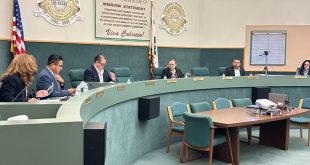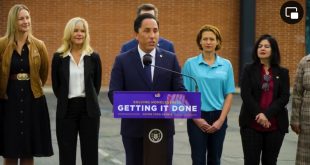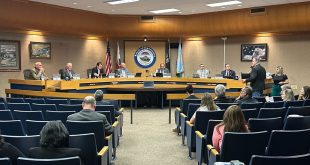
-Editorial
In Mexico, this first of July there will be an elected President for the Mexican Republic, 128 senators and 500 Congressmen, in addition to 2,818 local authorities. The day for elections will be July 1, 2018 and campaigns already started, as well as the electoral prohibition period.
During this period of electoral prohibition, which lasts from the beginning of campaigns until the day of elections, candidates and political parties are prohibited from conducting proselytizing acts. In other words, during that time it will be forbidden to hold meetings or public events for campaigns, propaganda or electoral proselytizing and its dissemination by any means, including radio and television.
From the very first minute of Friday, March 30, federal and local electoral campaigns began, which will conclude on June 27, when the reflection period begins without proselytizing activities, to give rise to the electoral day of Sunday, July 1.
At 8 a.m. of July 1, 2018, the polling places will be opened to elect the next president of the Mexican Republic. And with this, the second stage of the process begins which will start on September 8, when the National Electoral Institute publishes its calendar when contest begins.
According to the General Law of Electoral Institutions and Procedures, there are four stages of the electoral process: preparation of the election, beginning of the electoral day, results and declarations of validity, as well as final results.
Each stage is directed so that on December 1, 2018 the new president of the Republic takes office. 128 senators and 500 Congressman will also be elected, in addition to 2,818 local authorities, of which there are eight governors and the head of government.
In 30 of the 32 states, in addition to the federal campaign, there will be local elections. This year, only Baja California and Nayarit are saved, since in the rest of the states, local offices will be elected.
Chiapas, Guanajuato, Jalisco, Morelos, Puebla, Tabasco, Veracruz, Yucatan and Mexico City choose governor. Durango, Aguascalientes and Hidalgo vote to renew local Assembly; Coahuila, Tamaulipas and Quintana Roo only renew mayoral offices; but there are other states that choose both: local councils and assemblymembers such as Baja California Sur, Sonora, Chihuahua, Sinaloa, Zacatecas, Nuevo Leon, San Luis Potosi, Colima, Michoacan, State of Mexico, Querétaro, Guerrero and Oaxaca.
According to the electoral map, the states in which this 2018 election is at stake are: Jalisco, Guanajuato, Puebla, Morelos, Tabasco, Chiapas, Yucatan and Mexico City; where, in addition to governor, local congress, city councils or town halls are elected; and the country’s President.
This 2018 the voters will determine the future of Mexico, for it can only vote all those over 18 years who have requested their entry into the electoral roll and have their issued voter registration card.
Until December 15, in the nominal list -in which all citizens who requested their registration to the Register and do have their voting card with a valid photo- 87 million 879 thousand 838 Mexicans were registered.
Of these, 52% are women and the most represented age group is 20-24 years old; with eleven million young people.
In fact, official statistics show that the majority of registered voters are young, the public to which candidates must direct their campaigns to obtain their first vote. From 18 to 30 years of age there are 25.7 million Mexicans, 30%.
From the age group of 18 to 30 there are 25.7 million Mexicans, 30%.
For the first time this 2018, the INE promoted an electoral enrollment from abroad, being the Mexican consulates the registration point for Mexicans living outside Mexico, to vote from abroad they had to register. The registration was open from September 1, 2017 to March 31, 2018 (https://votoextranjero.ine.mx/registro/app/ciudadano/validaCredencial?execution=e1s1). Current Mexican voting credential is required.
The president of the United Mexican States is the holder of the executive power of said country. It is, at the same time, head of state and head of government. He is also the commander in chief of the Armed Forces.
He is elected by direct and universal vote. Once elected, he takes office on October 1st of the election year (this according to the last amendment to Article 83 of the Constitution in 2014). His position lasts a period of six years, with no possibility of re-election; not even in the case of having served as interim, provisional or substitute. The office of President of the Republic is only impeached by a serious cause, which must be approved by the Congress of the Union
During the week of February 14 to 19, we traveled to Mexico City, we had an assignment: interview the three main candidates for President of the Mexican Republic: Ricardo Anaya, José Antonia Meade and Andrés Manuel López Obrador. That same weekend was the official registration of these three main candidates for the country’s presidency.
We noticed that the capital city of Mexico is not what many say. It’s a very attractive place, with order, culture, many artistic and entertainment activities that can be enjoyed during the weekdays or weekend, day or night, and where there is a lot of safety and ease of transportation. We loved being in the capital of Mexico and visit the Senate of the Republic, where we were received by Baja California Senators, Víctor Hermosillo and Ernesto Ruffo whom we had the opportunity to interview.
On Sunday, February 18, each one of the presidential candidates was present in different places to summon before members of their parties and officially register as candidates for Mexico’s presidency. People in the capital of the republic felt calm, conformist, resigned, but at the same time, exhausted, fed up, and tired of the same and desperate for a genuine change.
This is Mexico, despite its great potential, it is still a third world country, with a lot of people in need and a few very prosperous and enriched hands with power and a lot of money. Mexico continues to send signals to the world that it is the least safe country to travel, despite its multiple natural and touristic attractions, it is still a challenge to attract foreign investment, due to the global atmosphere in which Mexico is perceived as an insecure country in which no one can trust.
Is this a myth or something true?
The mission of Beyond Borders Gazette has been to unite our borders, project the best of the United States and Mexico, talk about the good, eradicate the sensationalism and try to expose topics of interest that truly make the difference between our communities and people’s lives; we have the mission to be a bridge of good , attractive and functional communication for our binational region, the CaliBaja Region, a point of attraction for strategic investment worldwide.
We keep fighting, and between our efforts and our desire, we continue to find opposition among the hermeticists, among the elitists, among the closed minded and the negative, among the competitive and envious, among the liars and the corrupt, among the unjust and racist, among the arrogant and proud, so our task becomes more difficult every day, however we work with passion, swimming against the current, trying to make a difference and believing that word has power and it can transform lives, it can transform nations, and it can also transform the whole world.
So these elections will be very unique, because we see people with a thirst for real change, for a change that can be felt, for a tangible change.
That is why more than ever the proposals of the three main candidates will be vital for the election, also mentioning the independent candidate, Margarita Zavala, who too fights for a position in the presidency.
These are the promises of the three best positioned candidates for the Presidency:
Andrés Manuel López Obrador of the National Regeneration Movement (Morena)
Suspend the New Mexico City Airport (NAICM), Republican austerity plan, Back the Education Reform and review the Energy one, Lower the price of gasoline throughout the country, State Welfare for all Mexicans, increase salaries of the working class, Lower taxes and the price of fuel in the border area, Amnesty to combat organized crime.
Ricardo Anaya: Por México al Frente coalition
Government Coalition, Autonomous and independent Prosecutor’s Office, Restructuring of the strategy to fight organized crime, Economic growth with inclusive policies, Lower taxes in the northern border area of the country, Do not cancel the NAICM project.
José Antonio Meade from the Institutional Revolutionary Party (PRI)
The Advance With You Program, The National Registry of Needs for each Person, Create a Unique Registry of Beneficiaries of social programs, Extend the coverage of social programs to those who attend higher education and people with disabilities, School feeding programs, Zero tolerance to corruption and lack of professional ethics in public service, Strengthen the criminal justice system, Police salary improvements, do not cancel the NAICM
Margarita Zavala, independent
Create the conditions to grow more, Eliminate party financing, government spending on advertising and the “moche fund”, Build 100 universities, Increase salaries, Green energies, Eliminate ISR for those who earn up to 15 thousand pesos, Consolidate the Federal Police, Create Secretary of Citizen Safety, Combat corruption.
Undoubtedly, these 2018 elections in Mexico will be hotly contested, and there is much at stake, mainly the stability and future of a country in progress with a great potential whose future will be in the hands of all the brave who decide to go out and vote.





